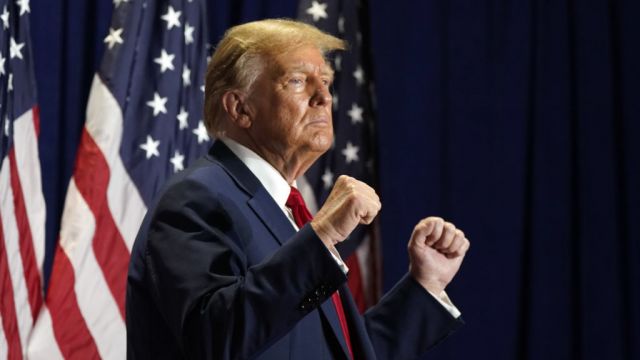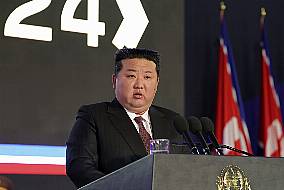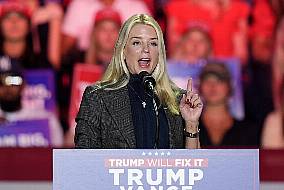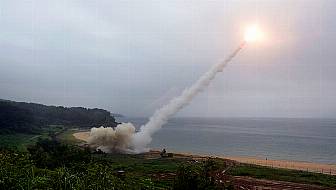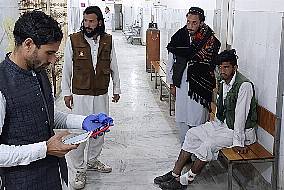A federal judge appeared reluctant to dismiss the classified documents prosecution of former US president Donald Trump on Thursday after his lawyers argued for hours that the case trampled on the former president’s rights.
As Mr Trump looked on in the courtroom, his attorneys pressed US District Judge Aileen Cannon to throw out the case, arguing he was legally entitled to keep the sensitive records he is charged with illegally retaining after he left the White House.
Mr Trump’s lawyers say the Presidential Records Act gave him the authority to designate the records he took with him to his Mar-a-Lago estate in Florida as personal property.
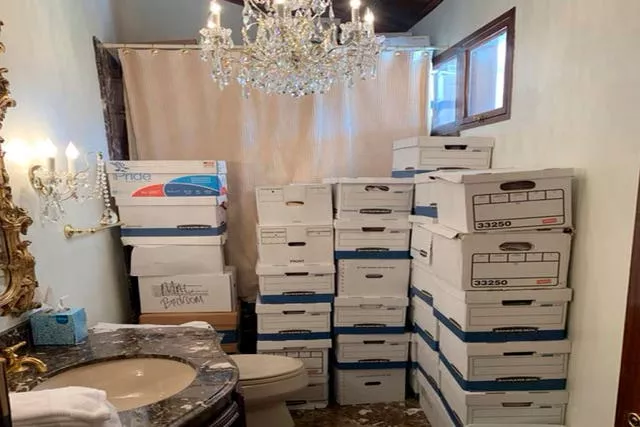
Prosecutors say those included top-secret information and documents related to nuclear programs and the military capabilities of the US and foreign adversaries.
Ms Cannon, who was nominated to the bench by Mr Trump, did not immediately rule but made it clear through her questions that she was sceptical of the defence effort to scuttle one of four criminal cases against the 2024 presumptive Republican presidential nominee.
Ms Cannon suggested she seemed inclined to have the disputed issues be decided by a jury.
A prosecutor told Ms Cannon that there are “all sorts of reasons” that Mr Trump’s argument is wrong.
Prosecutors said the files Mr Trump is charged with possessing are presidential records, not personal ones, and that the statute does not apply to classified and top-secret documents, like those kept at Mar-a-Lago.

David Harbach, a member of special counsel Jack Smith’s team, said: “The documents charged in the indictment are not personal records. They are not.
“They are nowhere close to it under the definition of the Presidential Records Act.”
Mr Trump sat at the defence table at the federal court in Fort Pierce with his hands clasped, listening intently to the arguments.
Mr Smith, who brought the case, was also in the courtroom, but there was no visible interaction between the two men.
The hearing is the second this month in the case in Florida.

Ms Cannon heard arguments on March 1 on when to schedule a trial date, but has yet to announce one and gave no indication on Thursday on when she might do so.
Prosecutors have pressed the judge to set a date for this summer, while Mr Trump’s lawyers are seeking to put it off until after the election.
Mr Trump’s lawyers also argued that the law that underpins the bulk of the charges is too vaguely worded to enforce against a former president.
At issue is a law that makes it a crime for an unauthorised person to wilfully retain national defence information. That charge forms the basis of 32 of the 40 felony counts against Mr Trump in the case.
Defence lawyer Emil Bove said ambiguity in the statute permits what he called “selective” enforcement by the Justice Department, leading to Mr Trump being charged but enabling others to avoid prosecution.

Mr Bove said that includes US president Joe Biden, the recent subject of a harshly critical report by special counsel Robert Hur on the president’s handling of classified information.
“The court’s obligation is to strike the statute and say ‘Congress, get it right,’” Mr Bove told Cannon.
Jay Bratt, another prosecutor with Mr Smith’s team, disputed that the statute was unclear.
The judge told Mr Trump’s attorney that striking down a statute — as the defence is seeking — would be “quite an extraordinary step”.
But she also pointedly noted to a prosecutor that no former president has ever been charged with mishandling classified documents.

Mr Bratt responded that there has never been another situation “remotely similar to this one”.
Mr Trump is accused of intentionally holding onto some of the nation’s most sensitive documents at Mar-a-Lago — only returning a fraction of them upon demand by the National Archives.
Prosecutors say he urged his lawyer to hide records and to lie to the FBI by saying he no longer was in possession of them and enlisted staff to delete surveillance footage that would show boxes of documents being moved around the property.
Mr Trump is separately charged in a federal case in Washington with conspiring to overturn the results of the 2020 presidential election.
He has argued in both federal cases that presidential immunity protects him from prosecution, though Ms Cannon has not agreed to hear arguments on that claim in the documents case.
The US Supreme Court is scheduled to hear arguments on Mr Trump’s immunity claim in the election interference case next month.
